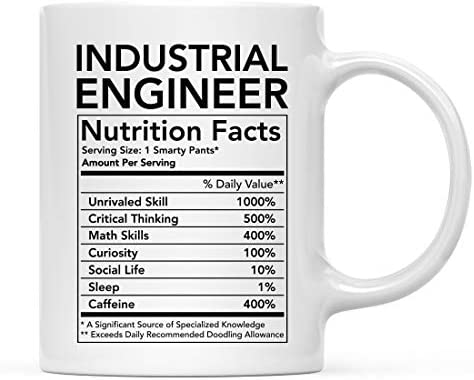
Industrial engineering wvu is the study of people, machines, information, equipment, and energy working together to produce products or provide services. Its goal is to maximize productivity while minimizing costs and increasing quality.
West Virginia engineers are in high demand for employment across many different industries. They are able to use their understanding of design, manufacturing, and operations to solve a wide range of problems in businesses and organizations.
Industrial engineering, in contrast to other types of engineering and science, is concerned with the overall picture. This includes the relationships between people, systems, and the right combination of resources that will produce products or provide services that exceed or meet customer expectations. It is a broad discipline that requires both technical and interpersonal skills, so you need to have a diverse background in both to excel in this career.
This field includes professionals who bridge the gap between operations and management, motivating employees and determining which tools and systems to use and how. They use computers and sophisticated programs to ensure that systems are working properly. This helps with productivity, reliability, scheduling, and cost control.

Students can use the knowledge, skills, and abilities of mathematics, statistics, engineering, management, and physics to analyze processes, design equipment, and produce services or products. They can work with mechanical, electric, electronic and computer equipment.
Graduates with experience in industrial engineering often have an edge over their peers on the job market. The graduates may enjoy higher salaries, greater responsibility and a more balanced work/life.
Co-op work is a great way for students to get real-world experience and gain knowledge while studying. These jobs may be with local companies or manufacturers, but are also available in the banking, construction and utility industries.
The University of West Virginia offers a co-op engineering program which gives students hands-on experience. These experiences include calculating materials, inspecting construction sites, and participating in field reviews.
Undergraduates can also take part in internships where they gain real-world experience. It is a great way to get a first-hand look at the engineering profession, and to make valuable connections with employers.

Graduates of WV engineering programs are eligible to sit the license exam. It is a good way to improve your resume and stand out amongst the competition.
The right industrial engineering program is essential to your success. There are many industrial engineering programs at the University of West Virginia that will meet your needs.
The minimum degree requirement is usually a bachelor's, though some colleges and university offer graduate programs in industrial engineering. These programs, which can last several years, are designed to help students prepare for further study or a career as industrial engineers.
The University of West Virginia offers a bachelor's degree in industrial engineering, as well as several master's degrees. These programs will prepare students to enter careers in industrial technology and to take on leadership roles in business. These programs are accredited through the Accreditation board for engineering and technology (ABET), Inc.
FAQ
What is the responsibility of a logistics manager?
Logistics managers are responsible for ensuring that all goods arrive in perfect condition and on time. This is accomplished by using the experience and knowledge gained from working with company products. He/she also needs to ensure adequate stock to meet demand.
What is the distinction between Production Planning or Scheduling?
Production Planning (PP) refers to the process of determining how much production is needed at any given moment. Forecasting and identifying production capacity are two key elements to this process.
Scheduling involves the assignment of dates and times to tasks in order to complete them within the timeframe.
What are my options for learning more about manufacturing
The best way to learn about manufacturing is through hands-on experience. However, if that's not possible, you can always read books or watch educational videos.
Why is logistics important in manufacturing
Logistics are an essential part of any business. They enable you to achieve outstanding results by helping manage product flow from raw materials through to finished goods.
Logistics play a key role in reducing expenses and increasing efficiency.
How can manufacturing avoid production bottlenecks
The key to avoiding bottlenecks in production is to keep all processes running smoothly throughout the entire production cycle, from the time you receive an order until the time when the product ships.
This includes planning for capacity requirements as well as quality control measures.
Continuous improvement techniques like Six Sigma are the best way to achieve this.
Six Sigma can be used to improve the quality and decrease waste in all areas of your company.
It's all about eliminating variation and creating consistency in work.
What are the 4 types of manufacturing?
Manufacturing is the process of transforming raw materials into useful products using machines and processes. It involves many different activities such as designing, building, testing, packaging, shipping, selling, servicing, etc.
Statistics
- You can multiply the result by 100 to get the total percent of monthly overhead. (investopedia.com)
- In the United States, for example, manufacturing makes up 15% of the economic output. (twi-global.com)
- Job #1 is delivering the ordered product according to specifications: color, size, brand, and quantity. (netsuite.com)
- In 2021, an estimated 12.1 million Americans work in the manufacturing sector.6 (investopedia.com)
- (2:04) MTO is a production technique wherein products are customized according to customer specifications, and production only starts after an order is received. (oracle.com)
External Links
How To
How to use 5S to increase Productivity in Manufacturing
5S stands in for "Sort", the "Set In Order", "Standardize", or "Separate". Toyota Motor Corporation developed the 5S method in 1954. It assists companies in improving their work environments and achieving higher efficiency.
The basic idea behind this method is to standardize production processes, so they become repeatable, measurable, and predictable. This means that every day tasks such cleaning, sorting/storing, packing, and labeling can be performed. Through these actions, workers can perform their jobs more efficiently because they know what to expect from them.
Implementing 5S requires five steps. These are Sort, Set In Order, Standardize. Separate. And Store. Each step has a different action and leads to higher efficiency. Sorting things makes it easier to find them later. You arrange items by placing them in an order. Then, after you separate your inventory into groups, you store those groups in containers that are easy to access. Finally, when you label your containers, you ensure everything is labeled correctly.
This requires employees to critically evaluate how they work. Employees must understand why they do certain tasks and decide if there's another way to accomplish them without relying on the old ways of doing things. To implement the 5S system, employees must acquire new skills and techniques.
In addition to improving efficiency, the 5S system also increases morale and teamwork among employees. As they begin to see improvements, they feel motivated to continue working towards the goal of achieving higher levels of efficiency.